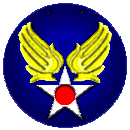 Air Force
Air Force Intelligence and Security Doctrine
 Air Force
Air Force AIR FORCE TECHNICAL APPLICATIONS CENTER
1. Mission. The Air Force Technical Applications Center (AFTAC) provides national authorities quality technical measurements to monitor nuclear treaty compliance and develops advanced proliferation monitoring technologies to preserve our Nation's security.
2. Command. The AFTAC Commander:
2.1. Is responsible to Deputy Chief of Staff, Plans and Operations, HQ USAF/XO, for operational policies and practices.
2.2. Commands personnel assigned to AFTAC.
2.3. Provides support to the Air Staff, Department of Defense, major commands, and other Federal agencies on the monitoring of international nuclear treaties.
2.4. Performs research and development on advanced verification technologies for counterproliferation of weapons of mass destruction on behalf of the Air Staff, Department of Defense, and other Federal agencies.
3. Responsibilities. The AFTAC Commander:
3.1. Operates the United States Atomic Energy Detection System (USAEDS) for detection of possible nuclear explosions and positive identification of these events as nuclear.
3.2. Monitors compliance of signatories with terms of the Threshold Test Ban Treaty of 1974 and the Peaceful Nuclear Explosion Treaty of 1976, and any future treaties addressing the proliferation of weapons of mass destruction.
3.3. Monitors provisions of Safeguard (d) of the Limited Nuclear Test Ban Treaty.
3.4. Provides information on nonnuclear activities detected by the USAEDS; such as earthquakes, subsurface high explosive detonations, and various atmospheric phenomena.
3.5. Performs research and development of new proliferation detection technologies which might enhance or assist treaty verification and limit the proliferation of all weapons of mass destruction.
3.6. Collects and correlates sensor data using advanced analysis techniques, leading to system development and reporting of real-time threats to warfighters.
3.7. Provides technical support/assistance to United States government agencies supporting international organizations responsible for the Non-Proliferation Treaty.
3.8. Provides technical expertise and assistance to the United States Government in evaluating technical verification methods for the Comprehensive Test Ban Treaty (CTBT), Chemical Weapons Convention Treaty, and Biological Weapons Convention Treaty.
3.9. Provides direct support to the United States Delegation to the United Nations' Conference on Disarmament and the Group of Scientific Experts for CTBT negotiations.
3.10. Provides technical support/assistance to the International Atomic Energy Agency on behalf of the US Government.